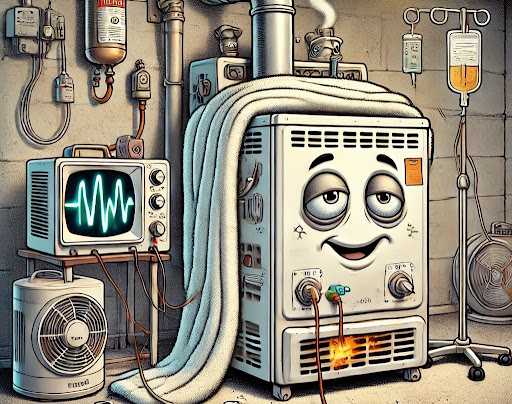As we quickly head into the colder months, it’s easy to take your heating system for granted and assume it’s going to turn on when you raise your thermostat. But one thing is for certain — no heating system lasts forever. With that in mind, do you know how much time yours has left?
Care Temp specializes in providing top-quality heating and cooling services to homeowners in Ocean County, NJ. Today, we’re going to dive into the longevity of various types of heating systems, including furnaces, heat pumps, boilers, and ductless mini-splits. Understanding how long your heating system can last and recognizing the signs of potential failures are crucial for maintaining a comfortable and cost-effective home environment.
Understanding the Lifespan of Common Heating Systems
Different types of heating systems offer varying lifespans, which can be influenced by the model, maintenance, and frequency of use.
Gas Furnaces
Gas furnaces are among the most common heating systems in homes today. A well-maintained gas furnace typically lasts between 15 to 20 years. Key components like the heat exchanger and heating elements are critical for efficient operation. Regular furnace repair can extend the lifespan significantly.
Heat Pumps
Heat pumps are favored for their ability to provide both heating and cooling. On average, heat pumps last about 15 years. The longevity of an air-source heat pump depends heavily on routine maintenance and the quality of installation. Heat pumps that are used extensively due to their dual function might experience quicker wear and tear.
Ductless Mini-Split Systems
Ductless mini-split systems are versatile and are used for both heating and cooling. They are generally expected to last about 20 years. Like other systems, the key to longevity is proper installation and regular maintenance, including cleaning the air filter to ensure optimal performance.
Signs Your Heating System May Need Attention
Recognizing the signs that your heating system is nearing the end of its life can help prevent unexpected breakdowns:
- Rising Energy Bills: If your energy bills are increasing despite no changes in home usage, it could indicate an inefficient heating system.
- Frequent Repairs: The need for frequent repairs can be a clear sign that your HVAC system is failing.
- Inconsistent Heating: Difficulty maintaining a uniform temperature or reduced heating efficiency could suggest problems with your air systems.
- Strange Noises or Smells: Unusual noises or smells coming from your heating unit could indicate that it’s time to consider a replacement.
Maximizing the Lifespan of Your Heating System
To ensure that your heating system operates efficiently for as long as possible, consider the following tips:
- Routine Maintenance: Regular checks and maintenance are essential. This includes everything from checking the air filter to ensuring the heating and cooling system components are in good working order.
- Professional Servicing: Have a professional technician perform annual servicing to check for potential issues with your heating system, such as damage to the heat pump or heat exchanger.
- Upgrade to Energy-Efficient Models: If your heating system is old, upgrading to a more energy-efficient model can save you money and improve heating efficiency.
Extend the Life of Your HVAC Systems with Care Temp
If you’re experiencing issues with your heating system or simply want to ensure it continues to operate efficiently, contact Care Temp. We offer expert HVAC services, including heating repair and maintenance, to help extend the life of your heating systems. Our team is ready to provide you with the support you need to keep your home warm and comfortable for years to come.
Don’t wait for the cold to creep in. Schedule an appointment today and let us take care of your heating needs, ensuring your system runs smoothly through every season.




